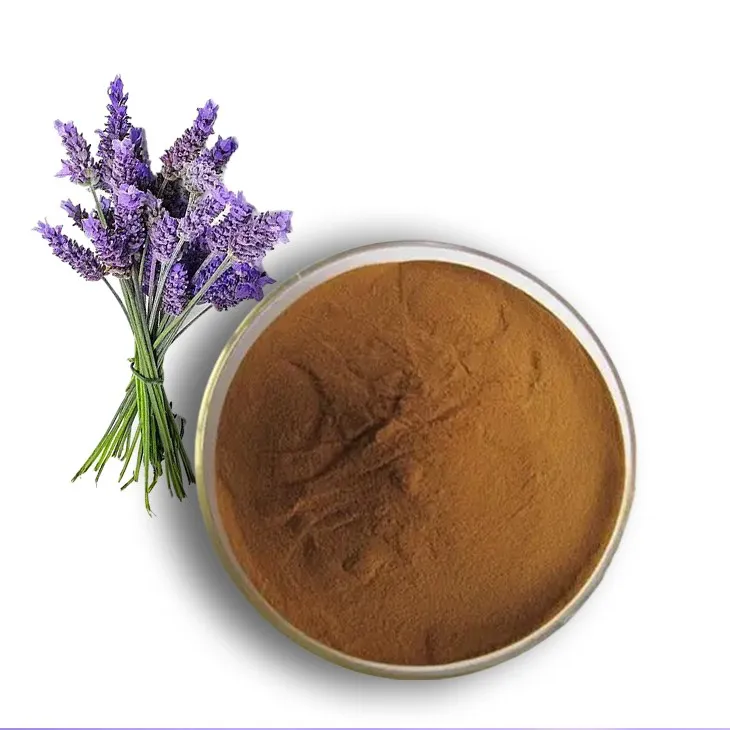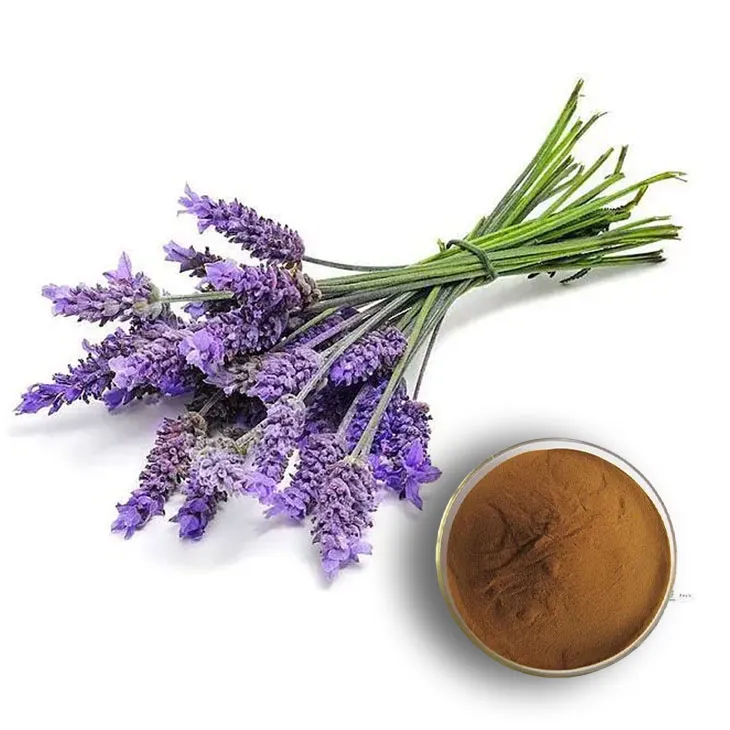- 0086-571-85302990
- sales@greenskybio.com
Chinese lavender extract manufacturers.
2024-11-27

1. Introduction to Chinese Lavender Extract Manufacturing
Lavender Extract manufacturers in China are indeed making a significant impact on the international stage. The Chinese Lavender Extract manufacturing sector is a unique blend of traditional knowledge and modern technology. Traditional knowledge passed down through generations, combined with contemporary scientific advancements, has led to the growth and success of this industry.

2. The History of Lavender Cultivation in China
In some areas of China, the cultivation of lavender has a long - standing history. Local farmers have been involved in lavender cultivation for many years. Over time, they have accumulated rich experience in understanding the plant's growth requirements, soil preferences, and climate adaptability. This historical background has laid a solid foundation for the development of the lavender extract manufacturing industry.

3. Modern Extraction Methods
Modern manufacturing plants in China utilize state - of - the - art extraction methods.
3.1 Steam Distillation
Steam distillation is one of the primary methods used. This process involves passing steam through the lavender plant material. The steam helps to vaporize the essential oils present in the lavender. These vapors are then condensed back into a liquid form, which contains the pure lavender extract. This method is highly effective in obtaining high - quality extracts while maintaining the integrity of the active compounds in lavender.
3.2 Solvent Extraction
Another important method is solvent extraction. In this process, solvents are used to dissolve the desired compounds from the lavender. The solvent is then carefully removed, leaving behind the concentrated lavender extract. This method is particularly useful for extracting a wide range of compounds, including those that may not be easily obtained through steam distillation.

4. Applications in Different Industries
Chinese lavender extract manufacturers play a crucial role in multiple industries due to the versatile properties of lavender extract.
4.1 Food and Beverage Industry
In the food and beverage industry, lavender extract serves as a natural flavoring agent. It imparts a unique and pleasant taste to various products. For example, it can be added to desserts such as cakes, ice creams, and pastries to give them a floral and refreshing flavor. In beverages, lavender - flavored teas, cocktails, and even some soft drinks are becoming increasingly popular. The use of lavender extract as a natural flavoring also meets the growing consumer demand for natural and healthy food and beverage options.
4.2 Textile Industry
The textile industry also benefits from lavender extract. It is used for its natural fragrance, which can provide a pleasant scent to textiles. Additionally, lavender has potential antibacterial properties. This makes it useful in treating textiles to prevent the growth of bacteria and fungi, thereby increasing the durability and hygiene of the fabric. Lavender - scented linens, clothing, and home textiles are in high demand among consumers who appreciate natural and functional products.
5. Research and Development Efforts
Chinese manufacturers are actively investing in research and development (R&D) related to lavender extract.
5.1 Discovering New Applications
They are constantly exploring new applications of lavender extract. For instance, in the field of cosmetics, research is being conducted to determine its potential as an ingredient in skin - care products. Lavender extract may have properties such as anti - inflammatory and antioxidant effects, which could be beneficial for skin health. In the pharmaceutical industry, there is also interest in studying its potential medicinal properties, although more research is needed in this area.
5.2 Collaboration with International Partners
Chinese manufacturers are collaborating with international partners. This collaboration involves sharing knowledge and expertise in lavender cultivation, extraction, and application. By working together, they can expand their market reach and gain access to new technologies and markets. For example, joint research projects may be carried out to develop new products or improve existing extraction processes. This also helps in promoting the international recognition of Chinese lavender extract products.
6. Sustainable Practices
The commitment of Chinese lavender extract manufacturers to sustainable cultivation and manufacturing practices is of great significance.
6.1 Ensuring Long - Term Availability of Resources
Sustainable cultivation practices ensure the long - term availability of lavender resources. This includes measures such as proper soil management, water conservation, and pest control using environmentally friendly methods. By taking care of the lavender fields in a sustainable way, manufacturers can continue to produce high - quality extracts without depleting the natural resources.
6.2 Meeting the Demand for Environmentally Friendly Products
In today's global market, there is a growing demand for environmentally friendly products. Chinese manufacturers are meeting this demand by adhering to sustainable manufacturing processes. This includes reducing waste, using renewable energy sources in the manufacturing plants, and minimizing the use of harmful chemicals in extraction. These practices not only benefit the environment but also enhance the market competitiveness of Chinese lavender extract products.
7. Conclusion
In conclusion, Chinese lavender extract manufacturers have come a long way in establishing themselves on the international stage. Their combination of traditional knowledge and modern technology, along with their efforts in research and development and sustainable practices, has made them an important part of the global lavender extract industry. As they continue to innovate and collaborate, the future looks promising for Chinese lavender extract manufacturers and the industries they serve.
FAQ:
What are the main extraction methods used by Chinese lavender extract manufacturers?
Chinese lavender extract manufacturers mainly use state - of - the - art extraction methods such as steam distillation and solvent extraction to obtain pure and potent lavender extracts.
What industries can benefit from Chinese lavender extract manufacturers?
Multiple industries can benefit. In the food and beverage industry, it can be used as a natural flavoring agent. In the textile industry, it can be used for its natural fragrance and potential antibacterial properties.
How do Chinese lavender extract manufacturers ensure the long - term availability of lavender resources?
They are committed to sustainable cultivation and manufacturing practices, which helps to ensure the long - term availability of lavender resources.
What role does traditional knowledge play in Chinese lavender extract manufacturing?
China's lavender extract manufacturing sector combines traditional knowledge and modern technology. Local farmers and manufacturers have accumulated rich experience over time, which may contribute to aspects like cultivation techniques and some traditional extraction - related knowledge that could be integrated into modern manufacturing processes.
How do Chinese lavender extract manufacturers expand their international market reach?
They are collaborating with international partners to share knowledge and in this way expand their market reach.
Related literature
- Lavender Extract: Production and Applications in China"
- "Chinese Lavender Extract Manufacturing: Technological Advancements"
- "Sustainable Lavender Extract Production in China"
- ▶ Hesperidin
- ▶ Citrus Bioflavonoids
- ▶ Plant Extract
- ▶ lycopene
- ▶ Diosmin
- ▶ Grape seed extract
- ▶ Sea buckthorn Juice Powder
- ▶ Fruit Juice Powder
- ▶ Hops Extract
- ▶ Artichoke Extract
- ▶ Mushroom extract
- ▶ Astaxanthin
- ▶ Green Tea Extract
- ▶ Curcumin
- ▶ Horse Chestnut Extract
- ▶ Other Product
- ▶ Boswellia Serrata Extract
- ▶ Resveratrol
- ▶ Marigold Extract
- ▶ Grape Leaf Extract
- ▶ New Product
- ▶ Aminolevulinic acid
- ▶ Cranberry Extract
- ▶ Red Yeast Rice
- ▶ Red Wine Extract
-
Artichoke Leaf Extract
2024-11-27
-
Green coffee bean Extract
2024-11-27
-
Sophora Flavescens Root Extract
2024-11-27
-
Black Pepper Extract
2024-11-27
-
Artichoke Extract
2024-11-27
-
Maca Extract
2024-11-27
-
Red Vine Extract
2024-11-27
-
Genistein
2024-11-27
-
Peppermint Extract Powder
2024-11-27
-
Berberis aristata Extract
2024-11-27





















